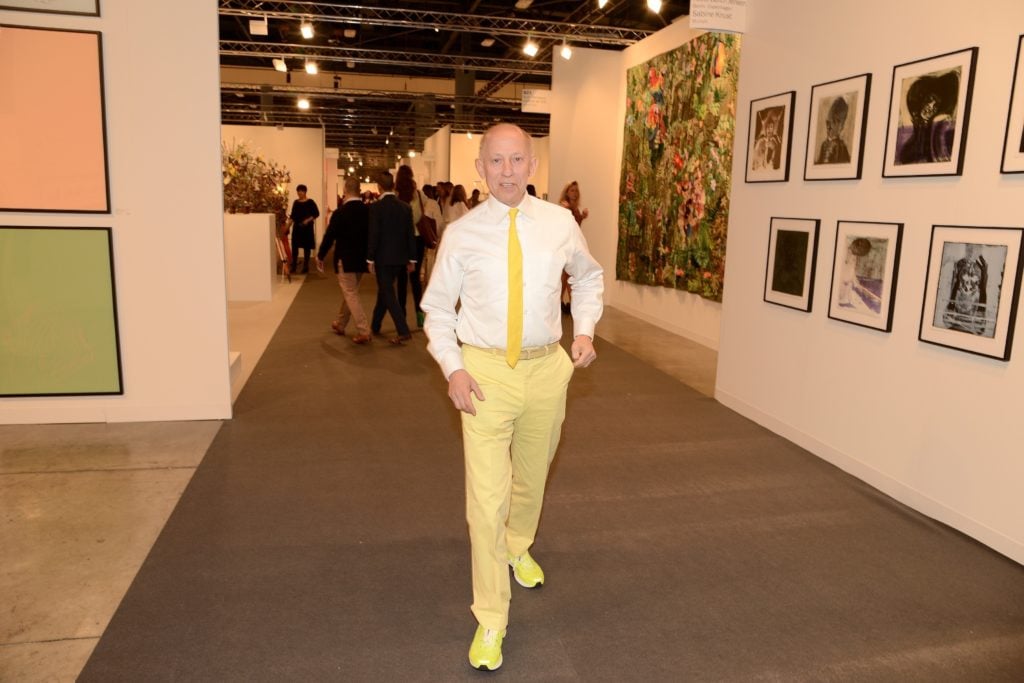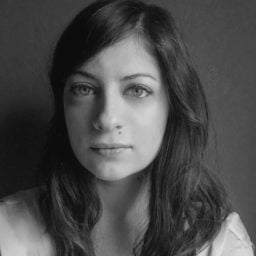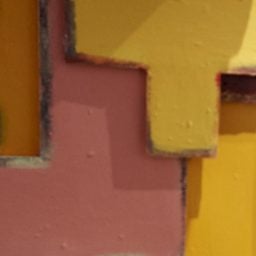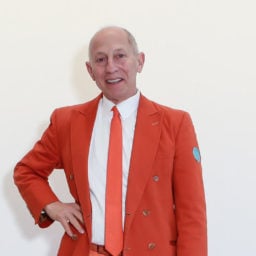During Frieze Los Angeles last month, a familiar figure was spotted in the aisles wearing an unmistakable yellow suit. It was a rare public appearance by Knight Landesman just two months after a judge dismissed the lawsuit brought by one of his former employees who claimed the former Artforum co-publisher sexually harassed her for years.
(His presence made an impression; among the numerous messages sent from the floor to this reporter were: “He’s back,” “Curious to know who gave him a VIP pass,” and “I hope he is made to feel unwelcome.”)
But if Landesman was feeling then like he had beaten the case, he isn’t home free yet. Schmitt’s attorneys filed a brief today in the New York State court of appeals arguing that her case was unfairly dismissed in December.
“We took a very hard look at the court’s decision,” Schmitt’s attorney, Emily Reisbaum, told artnet News in an email. “Our view continues to be that it is wrong. We hope, and expect, that the appellate division will agree and reinstate Amanda’s case.” (Schmitt first announced her plan to appeal in January.)
Schmitt, who worked as a circulation assistant at the magazine beginning in 2009, was among dozens of women to come forward with accusations that Landesman groped them, offered to advance their careers in exchange for sexual favors, and sent sexually explicit texts and emails. She approached Artforum‘s other co-publishers with evidence of the harassment in 2016 but says they did nothing to stop it beyond asking Landesman to seek therapy. Then, the following year, when allegations of Landesman’s misconduct went public on artnet News, the publishers released a statement discrediting Schmitt’s claims as “unfounded” and arguing that they were an “an attempt to exploit a relationship that she herself worked hard to create and maintain.” (The next day, Schmitt filed her case and Landesman resigned.)
Because the five-year statute of limitations to bring a sexual harassment lawsuit had run out by the time Schmitt filed her claims in 2017, her suit instead focuses on allegations of slander, retaliation, and defamation that she says took place once she spoke out about the abuse.
Her arguments did not convince New York state court judge Frank Nervo. “The five-year gap between [Schmitt’s] employment and the alleged wrongful acts is sufficient to eliminate any nexus between her employment and the alleged acts,” he wrote in his opinion.
But Schmitt’s attorneys say that the judge was wrong on several key points. For one thing, they argue that there’s no legal basis for tying the timing of the retaliation to the timing of her employment at the magazine. Instead, “the required connection is between plaintiff’s protected conduct and the retaliation,” Schmitt’s lawyers write in the brief. “The time between Schmitt’s protected conduct—namely, her reports to Artforum of Landesman’s harassment of her and others—and respondents’ retaliatory acts was not ‘five years’; it was mere months.”
Beyond the timing issue, it’s easy to establish the “nexus” between the retaliation and Schmitt’s reporting of the harassment because Artforum and Landesman “expressly admitted that their slander and defamation of Schmitt were prompted by her reports of Landesman’s harassment,” her lawyers say.
The judge also concluded that the magazine had no responsibility to protect Schmitt as a former employee. Schmitt had said in her complaint that Landesman once approached her at a restaurant and told her table of art-world professionals that Schmitt had “unfairly accused” him of sexual harassment and insisted that they discuss it together so that her guests would “help [her] understand the reality.” But even if that were true, “Landesman’s alleged bad act was not made while he was under Artforum’s control,” the judge wrote. “At most, Artforum assumed a moral obligation; however, such an obligation does not create a legally enforceable duty.”
But Schmitt’s lawyers argue that Title VII of the Civil Rights Act prohibits discrimination “related to or arising out of an employment relationship, whether or not the person discriminated against is an employee at the time of the discriminatory conduct.”
Finally, the judge had argued that the negative statements that Artforum and Landesman allegedly made about Schmitt were merely responses to accusations against them and did not constitute defamation. But Schmitt’s lawyers insist “that a former employer and supervisor’s repeated, deliberately public smears” should not be seen as a justifiable response to the reporting of sexual harassment.
“Despite Artforum’s knowledge of Landesman’s history of sexual harassment in its offices and the art industry, ability to investigate Schmitt’s claims, and ability to sanction Landesman, it continued to enable him, giving him a position of power at the top of the industry, which he continued to abuse,” the lawyers write in the brief. “This failure to exercise even ‘slight care’—having created a duty to act with care by its promise to Schmitt—is actionable.”
A representative for Artforum declined to comment. An attorney for Landesman did not immediately respond to a request for comment.









